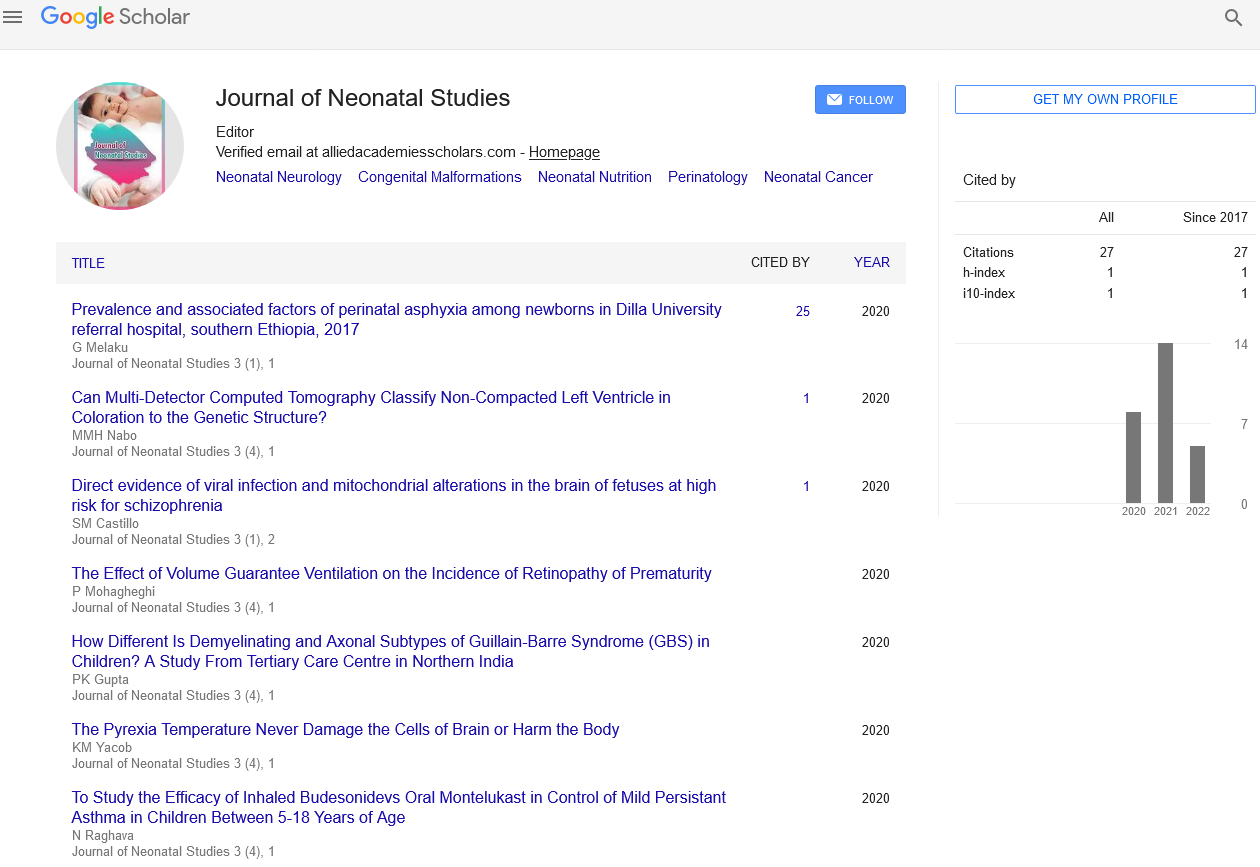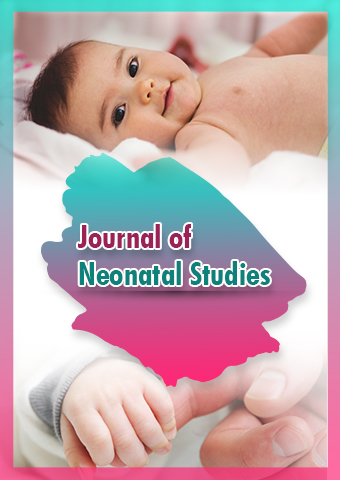Perspective - Journal of Neonatal Studies (2024) Volume 7, Issue 4
The Stool Volatile Metabolome in Neonates: Valuable Insights into the Health and Development of Newborns
- Corresponding Author:
- Jasmine Kristine
Department of Pediatrics, St. Paul University Philippines, Philippines
E-mail: 12JKristine@spup.edu
Received: 03-Jul-2024, Manuscript No. JNS-24-150524; Editor assigned: 05-Jul-2024, PreQC No. JNS-24-150524 (PQ); Reviewed: 19-Jul-2024, QC No. JNS-24-150524; Revised: 20-Aug-2024, Manuscript No. JNS-24-150524 (R); Published: 27-Aug-2024, DOI: 10.37532/JNS.2024.7(4).253-254
Introduction
The stool volatile metabolome refers to the collection of Volatile Organic Compounds (VOCs) present in feces. These compounds are produced by the gut microbiota and host metabolism and can provide important information about the gut environment and overall health. In neonates, the stool volatile metabolome is particularly important as it can reflect the early development of the gut microbiome and its interactions with the host.
Description
Composition of the stool volatile metabolome
The stool volatile metabolome in neonates is composed of a diverse array of VOCs, including aldehydes, ketones, alcohols, and acids. These compounds are produced through various metabolic processes, such as fermentation of dietary fibers, protein and lipid metabolism, and microbial activity. The composition of the stool volatile metabolome can change significantly during the neonatal period, reflecting the dynamic nature of the gut microbiome and its interactions with the host.
Factors influencing the stool volatile metabolome
Several factors can influence the composition of the stool volatile metabolome in neonates:
Gestational age: The gestational age at birth plays a crucial role in shaping the stool volatile metabolome. Preterm infants often have different microbial compositions and metabolic profiles compared to full-term infants, leading to variations in the stool volatile metabolome.
Mode of delivery: The mode of delivery (vaginal birth vs. cesarean section) can impact the initial colonization of the gut microbiome and, consequently, the stool volatile metabolome. Vaginally delivered infants are exposed to maternal microbiota during birth, which can influence the early development of the gut microbiome.
Feeding practices: The type of feeding (breast milk vs. formula) can significantly affect the gut microbiome and the stool volatile metabolome. Breast milk contains beneficial bacteria and prebiotics that promote a healthy gut microbiome, while formula feeding may lead to different microbial compositions and metabolic profiles.
Antibiotic exposure: Exposure to antibiotics can disrupt the gut microbiome and alter the stool volatile metabolome. Antibiotics can reduce the diversity of the gut microbiota and lead to the overgrowth of pathogenic bacteria, affecting the production of VOCs.
Environmental factors: The neonatal environment, including factors such as hygiene practices, exposure to pets, and the use of probiotics, can influence the gut microbiome and the stool volatile metabolome.
Potential applications in neonatal health
The study of the stool volatile metabolome in neonates has several potential applications in neonatal health:
Early detection of infections: Changes in the stool volatile metabolome can serve as early indicators of infections, such as Necrotizing Enterocolitis (NEC) and sepsis. Monitoring VOCs in stool samples can help identify infections before clinical symptoms become apparent, allowing for timely intervention.
Assessment of gut health: The stool volatile metabolome can provide insights into the overall health of the gut microbiome. A balanced and diverse metabolome is associated with a healthy gut, while imbalances can indicate dysbiosis and potential health issues.
Personalized nutrition: Understanding the stool volatile metabolome can help tailor nutritional interventions for neonates. By identifying specific metabolic profiles, healthcare providers can recommend personalized dietary plans to support optimal gut health and development.
Monitoring treatment efficacy: The stool volatile metabolome can be used to monitor the efficacy of treatments, such as probiotics and antibiotics. Changes in VOCs can indicate the effectiveness of interventions and guide adjustments in treatment plans.
Research and future directions
Ongoing research is focused on expanding our understanding of the stool volatile metabolome in neonates and its applications in neonatal health. Future studies will explore the long-term effects of early gut microbiome composition on health outcomes, the impact of different feeding practices on the stool volatile metabolome, and the development of non-invasive methods for monitoring gut health in neonates.
Conclusion
Neonatal nursing is a specialized field dedicated to providing comprehensive care for newborn infants during their initial days of life. This crucial period requires skilled nursing intervention to support the transition from intrauterine to extrauterine life and promote the health and well-being of neonates. In this article, we will explore essential nursing guidelines for neonates, covering various aspects of care, from assessment and monitoring to feeding and developmental support.

